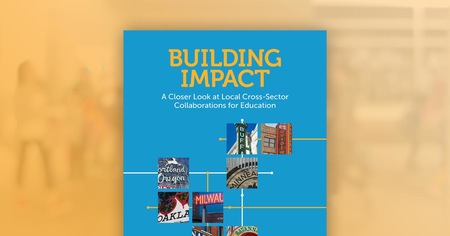At National League of Cities (NLC), we often say cities are where the rubber meets the road. What that means regarding afterschool: The effects of youth disengaging from school, getting into trouble because they have no place to go, and not having workforce skills hit home in local communities. Mayors and city councilmembers understand the connections between successful youth and an economically thriving city. They care about education quality and are concerned about residents' safety.
Afterschool and summer programs are ideal for impacting youth outcomes. With the changing workforce, afterschool programs could be the only place youth are exposed to STEM opportunities or meet someone from a local business. There's an inextricable tie between afterschool programs and a city's vitality.
"In our changing economy, millions of jobs are going unfilled due to the gap between the skills workers have and the experience employers need," said Matt Zone, NLC President, Cleveland City Councilmember. "Afterschool provides hands-on experience, exposure to career pathways, and develops essential skills to help us close this gap."
NLC's Institute for Youth, Education, and Families has helped hundreds of cities utilize municipal leadership to create, improve, expand or sustain quality afterschool programs. We've helped cities create systems coordinating various afterschool program efforts into one system—maximizing reach, scale, breadth and youth impact. The Wallace Foundation has made deep investments to support growth and sustainability of impressive systems in Denver, Saint Paul, Grand Rapids (Michigan), Louisville, Nashville, Jacksonville, Fort Worth, Baltimore, Philadelphia, Chicago, Boston, New York City, and Washington, D.C.; smaller cities like Brooklyn Park (Minnesota), Asheville (North Carolina), and Hammond (Louisiana) learned from them and developed their own systems.
How do you approach elected officials to engender support for your program or programs citywide? Speak their language, learn what they are passionate about, follow their campaign promises ... and make the connection to afterschool opportunities. Afterschool programs have many benefits and broad public support, and are tied to multiple outcomes, so making the connection to city priorities isn't difficult. City leaders could be important advocates if you explain how afterschool programs are a strategy for crime prevention and public safety, neighborhood development and community engagement, economic and workforce development. Share how programs help youth develop critical lifelong social, emotional and workforce skills to help them navigate school and successfully enter the workforce. Consider how your big-picture program goals may align with your mayor's goal to improve the community—and pitch your case! Have data ready, show impact, and have youth and parents share how your program improved their lives.
We're in tough political times, with concern about the future of federal afterschool funding. One of the best things advocates can do is inform elected officials how many children are served by 21st Century Community Learning Center grants in their city. Discuss what would happen to your program's youth and families if you lost those dollars. Where would they go? Bring police chiefs into this conversation; they are keenly aware of the safety challenges between 3 and 6 p.m.
Municipal officials can play many roles to support programs. Cities can:
- Create a public awareness campaign about afterschool's importance and feature quality programs.
- Invest general fund dollars in programs to expand or sustain slots.
- Connect city-funded recreation or library programs with community partners to improve programming quality.
- Use the city's GIS capabilities to map need across neighborhoods and make targeted resource decisions.
- Partner with schools to share data, so afterschool programs can impact youth with the greatest needs.
- Co-locate city programs at schools.
- Utilize the bully pulpit, giving afterschool programs greater visibility to parents and the broader community.
- Use the power of the mayor's office to advocate for state and federal dollars.
- Convene philanthropic organizations and business leaders to develop a funding strategy to support youth in programs across the city.
Times and families have changed. Jobs and the skills needed have changed. While youth needs are changing to keep up, basic needs for safety, food and nutrition, a caring adult, and engaging activities remain the same. Talk to your mayor about afterschool programs as a cost-effective solution to meet these needs and put youth on the path to success.
 Bela Shah Spooner is the Program Manager for Expanded Learning at the National League of Cities Institute for Youth, Education, and Families. Over her 12+ years at NLC, she has helped hundreds of city leaders become champions for afterschool and supported over 40 cities develop citywide afterschool systems.
Bela Shah Spooner is the Program Manager for Expanded Learning at the National League of Cities Institute for Youth, Education, and Families. Over her 12+ years at NLC, she has helped hundreds of city leaders become champions for afterschool and supported over 40 cities develop citywide afterschool systems.
This article was originally published in the Summer 2017 issue of AfterSchool Today, the official publication of NAA.




